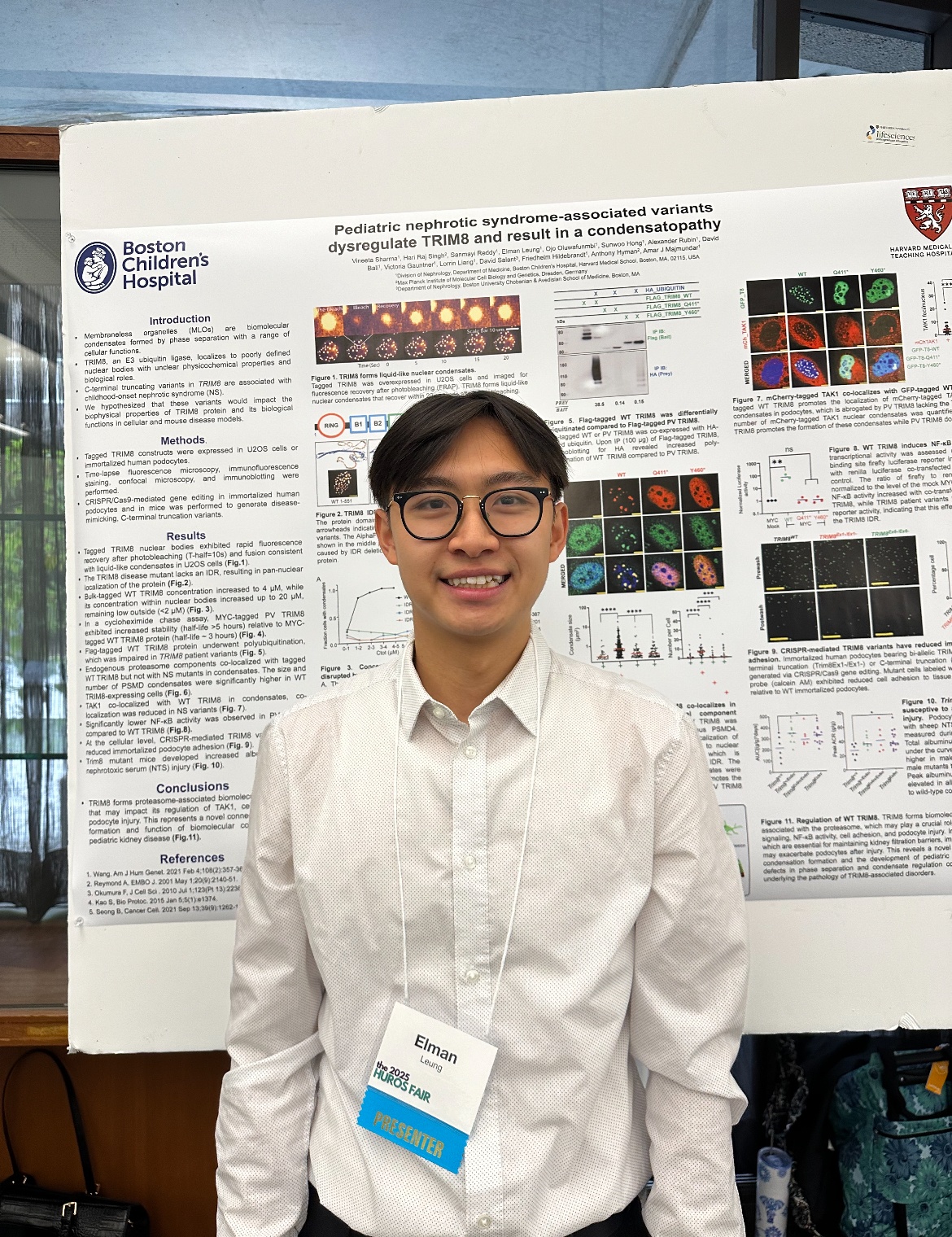



Oluwafunmbi Ojo, BS, BA | Masters Thesis Student | 2025–
Oluwafunmbi earned her BS in Behavioral Neuroscience and BA in Health, Medicine, and Society from Lehigh University. She is currently completing her Master of Science in Medical Sciences at Boston University. Before joining the Majmundar Lab at Boston Children’s Hospital, Oluwafunmbi conducted neuro-oncology research at the Luxembourg Institute of Health, and investigated plasma biomarkers of neurotrauma in Lehigh University’s Simon Lab. She currently volunteers at Victory Programs' Boston Living Center and ABCD's Food Bank in Fenway. This year, Funmbi will be evaluating the effects of novel compounds in mouse models of focal segmental glomerulosclerosis (FSGS) as part of her thesis research. Outside of the lab, she enjoys learning new languages, exploring different cuisines, and spending time with friends and family.

Sanmayi Reddy, BS | Masters Thesis Student | 2025–
Sana graduated from Brandeis University in 2024 with a double major in Health: Science, Society, and Policy (HSSP) and Psychology. During her time at Brandeis, she led the Partners In Health Engage chapter and volunteered with the Medical Reserve Corps, fostering her passion for community health and global health equity. She is currently pursuing a Master of Science in Medical Sciences (MAMS) at Boston University and is exploring the genetics of pediatric kidney stone formation in the Majmundar Lab. Outside the lab, Sana enjoys engaging in different art activities, cooking and baking, and exploring new places with her family and friends.

Elman Leung, BS | Masters Thesis Student | 2025-
Elman completed his BS in Human Physiology at Boston University and is currently completing his Masters in Medical Sciences at BU School of Medicine. Before joining the lab, he was a research assistant at BUSM focused on Retinal injury under Dr. Andrew Taylor's lab in Ophthalmology, and helped publish the article "Alpha-Melanocyte-Stimulating Hormone Maintains Retinal Homeostasis after Ischemia/Reperfusion". Elman works as an Anesthesia Technician at Beth Israel on the weekends and is a Physiology tutor at BUSM. He also volunteers at the Allston Brighton Food Pantry every Wednesday. This year, Elman will be writing his thesis and contributing to the Majmundar Lab at Boston Children's Hospital. He will be exploring signaling pathways and drug treatments in focal segmental glomerular sclerosis. Outside of work, Elman loves to stay active by playing soccer, tennis, running, and is also a video editor.
